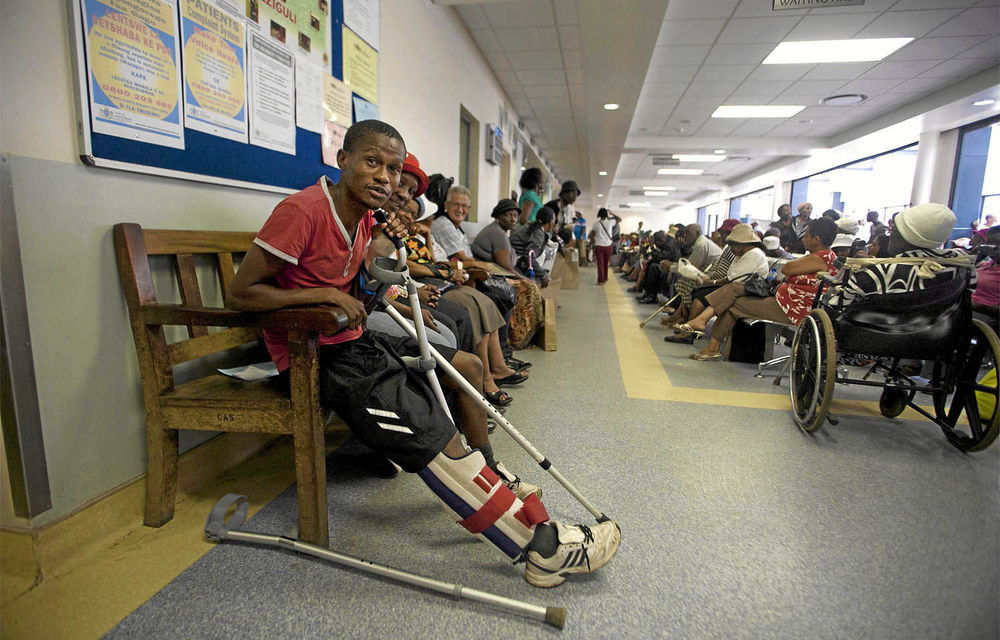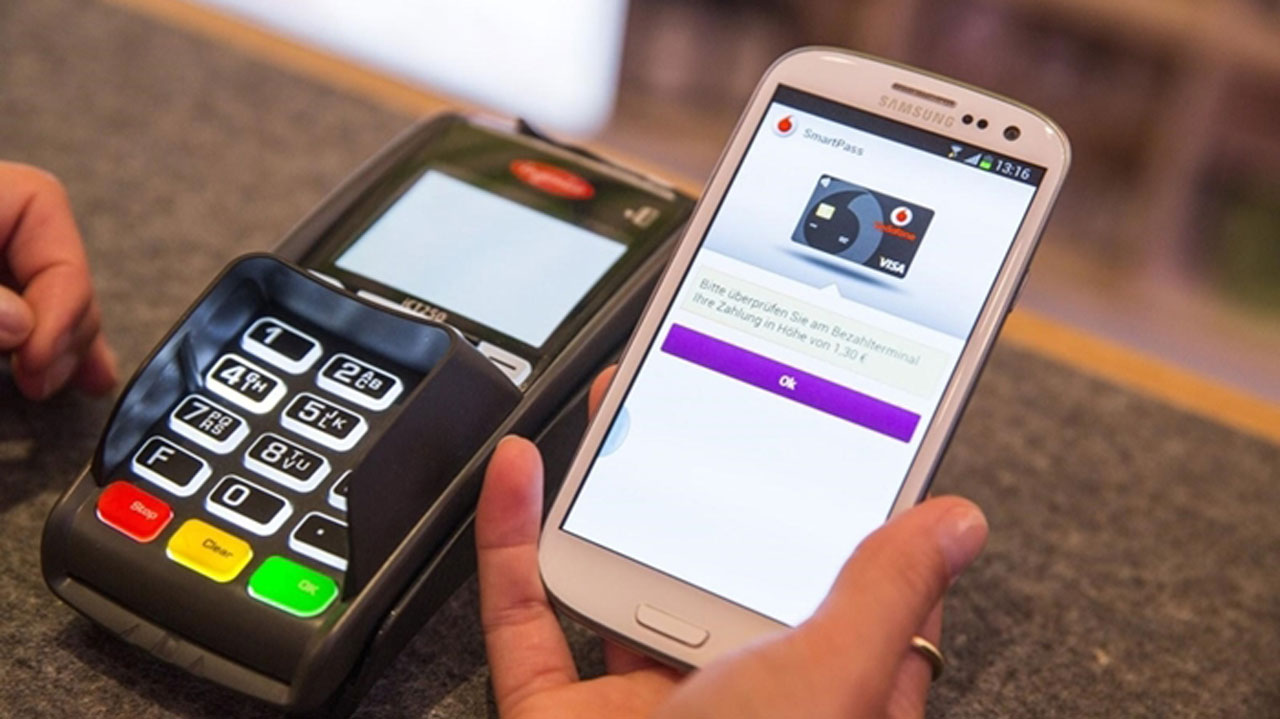Healthcare startups in South Africa are playing their part in helping to address the inequality in the country’s healthcare sector.
As the world’s most unequal country, South Africa’s lopsided wealth distribution has created a two-tiered healthcare system whose inequality mirrors that of apartheid, a system supposedly replaced by democracy 29 years ago. On the one hand, there is a mostly dilapidated public healthcare system servicing 85% of the population, and on the other hand is a world-class private healthcare system which ranks as the best on the continent.
To access efficient healthcare in private institutions, employed middle-class South Africans rely on medical aid schemes which subsidise around 90% of medical expenses. Despite this advantage, medical aid costs have surged in South Africa over the years, with coverage now costing an average of over R2,000 ($102). This has forced more people into the public healthcare system which already services unemployed inhabitants who make up 33% of the country’s population. Additionally, it is characterised by understaffing, dilapidated infrastructure, and constant medical supplies shortages.
In June, South Africa’s national assembly passed the National Health Insurance (NHI) act which seeks to provide universal access to quality healthcare in the country. However, according to academics, until the NHI gets to a point where it can fulfil its mandate, technology innovators still have a large role to play in plugging the current gap.
“Healthcare and services promoting health as a resource in South Africa are ripe for systemic innovation that capitalises on resource scarcity,” writes Katusha de Villiers, senior project manager at Bertha Centre for Social Innovation and Entrepreneurship. “The work of social innovation provides an opportunity to develop transformative and systemic solutions that move the system as a whole closer to achieving health equity.”
To that end, there are numerous startups in the country, which are innovating for healthcare equity in the southern Africa nation.
Role of startups in the quest for healthcare equity
One of those startups is Welo Health founded by Zanele Matome in 2020, which offers on-demand health services by connecting healthcare providers with patients via a model Matome refers to as “Uber for health.”
“Our core product comprises a B2B model which allows employees who are sick at home to use our app to match with a nurse,” Matome told TechCabal. “The nurse can choose to accept the appointment and attend to the patient, after which they upload information on their dashboard which is shared with patient and insurer.”
To accommodate unemployed and uninsured South Africans, the company had a B2C product which enabled delivery of medication to users. According to Matome, the service brought much needed convenience and dignity to users of the public healthcare system, but as the company pivoted to a B2B model, it slowed its focus on the product. However, after realising the need of such a service, especially in underprivileged communities, the company will be doubling down on the product after it raises its Series A round.
“For people who use public healthcare facilities, you have to wake up at 5 a.m. to queue at the clinic and have nurses shouting at you the whole day. There’s no dignity in the whole process,” she said. “ So this product addresses that pain point by offering delivery services on behalf of users. It is already live for our B2B clients, but after we secure funding we will also roll it out again to the B2C market.”
The company, which has so far raised $500,000 in venture funding as well as a $50,000 grant from the Bill & Melinda Gates Foundation-backed Investing in Innovation Africa (i3) initiative, claims that its B2B product offering bring in over R500,000 ($27,000) of monthly recurring revenue. As the company looks to relaunch the B2C offering amidst a significant demand, they will be hoping to see how much its social impact will contribute to the company’s bottomline.
[ad]
Pocket Couch is another healthtech startup addressing the need for equitable access to healthcare in South Africa. Founded in 2019 by Onkgopotse Khumalo, the company enables users to better manage their mental health. Via a mobile app, users can access therapists and mental health care experts, screening, and tracking tools as well as content specific to whatever kind of support the user might be looking for.
“The whole idea started with the intention of making mental health care as accessible as possible, especially in communities where accessibility is hard,” Khumalo told TechCabal. “ We address the issues of cost, convenience and removal of stigma around mental health.”
Although Pocket Couch mainly works with enterprise clients to provide its services to their employees, it appreciates its role in catering for the rest of the population. To that end, it is engaged in various ways to ensure accessibility to mental health services in a country where 30% of the population has experienced a mental disorder in their lifetime.
One of those ways is engaging in advocacy work to urge the government to contribute more towards mental healthcare in the country. According to data by the National Health Institute, the South African government spends only 5% of its healthcare budget on mental healthcare projects. This comes down to $140 dollars per capita of the uninsured population in a year. In comparison, the healthcare spend in the private sector is $1,400 per capita annually, a 900% difference.
“The government’s spend on mental healthcare is low compared to the vastness of the problem so we are actively engaged in policy advocacy which we hope will pave the way for efficient legislation,” Khumalo added.
Additionally, the startup is increasing the participation of social workers and community-based leaders in administering care. According to Khumalo, this helps reduce the cost of administrative care which will widen the net of people able to access their services.
Women’s healthcare is another area rife with access inequalities in South Africa. According to data from Statistics South Africa, only 18% of women have medical aid to access healthcare services they cannot find in public facilities. Additionally, women of colour in rural areas are the ones most affected by this lack of access.
This is an issue that Zoie Health, a Johannesburg-based startup is aware of and is trying to address. According to co-founder Thato Schermer, the main mandate of the startup is to address the issue of lack of access to healthcare services for women. Through a mobile app which allows users to consult with medical professionals, Zoie Health hopes to greatly reduce the barrier to healthcare access for underprivileged women.
“It’s clear that South Africa has a private healthcare system that is of high quality and actually works. The unfortunate thing is that only a few can access it,” Schermer told TechCabal. “With this in mind, we asked ourselves, how can we bring this excellence to women who can only afford public healthcare? That was the problem Zoiea Health set out to solve.”
The startup, which recently raised an undisclosed pre-seed round, further provides virtual consultations, and medication delivery from its pharmacy, as well as information resources to users.
Challenges facing equitable healthcare access
Despite the obvious good that comes out of startups’ efforts to provide equitable healthcare access in South Africa, challenges persist. The first one is that like any other venture-backed startup, investors expect startups to grow exponentially. This can be a difficult ask for startups if they focus their attention on the public sector where numerous systemic complexities exist.
Bas Hochstenbach is co-founder and managing partner at E4E Africa, a Cape Town-based venture capital firm which has made investments in healthtech startups. According to him, the catch-22 situation for startups, where they have to spread themselves between profitability and addressing healthcare needs, is complex to address.
“If a startup pitches a public healthcare-oriented business model, most VCs are a little bit skittish because the question about who’s going to pay for it? You are expecting either government or underprivileged people to pay for it, which is hard,” Hochstenbach tells TechCabal. “So the challenge for startups looking to address pain points in public healthcare is, how do you strike a balance between profitability while servicing a market with very small wallets?”
Despite this challenge, E4E recently made an investment in Vula Mobile, a startup that provides a platform for health workers to refer patients to specialists. The startup was founded in 2014 by William Mapham, an ophthalmologist, and Lungi Nyathi, a family physician.
According to Hochstenbach, the fact that startups like Vula have attained enough traction to attract VC investment shows that startups addressing the shortcomings of the public healthcare system, with smart business models, can scale.
Another challenge facing startups addressing equitable access to healthcare in South Africa is the stringent regulatory framework. One startup which has experienced the constraints of regulation is Mia Health, a dentaltech startup. The company, via B2B model, offers three services; a mobile dentistry service, proprietary clear retainers which the company claims costs half the price of similar options on the market, and a dental marketplace app.
In order to provide services to underprivileged communities, the company partners with corporate social responsibility arms of its enterprise customers to embark on community outreach initiatives in orphanages, schools, and more.
Mia Health was founded by Zane Stenning in 2021 and he cites compliance with the multitudes of regulations as one of the company’s early challenges. The healthcare industry in South Africa is regulated by the South African Health Products Regulatory Authority (SAHPA). SAHPA on the other hand is primarily guided by the provisions of the Constitution of South Africa. Additionally, the regulator expects players in the industry to abide by over 15 acts which cover areas such as ethics, disbursement of medicines, and management of personal information. For startups like Mia Health, who are mostly cash-strapped, abiding by all these requires lawyer consultations which do not come cheap.
“When we started, we were bootstrapped so we could not spend thousands of rands on specialist medical legal lawyers. So we had to spend thousands of hours reading material to at least get a grasp of it all,” Stenning told TechCabal. “Only after that did we approach a lawyer and because we had learnt a fair bit of the basics, we reduced the number of consultation hours to pay for.”
Apart from Stenning, this challenge was also reiterated by almost all other startups that TechCabal spoke to for this article, perhaps showing the far-reaching impact of the challenge.
The future of healthcare equity in South Africa
Despite the passing of the NHI bill, there seems to be an overarching consensus in the South African healthtech ecosystem that the imminent arrival of the law is no reason to relax equitable healthcare efforts. In contrast, it seems to be a motivation to innovate even more for equity.
The country still faces surging rates of different ailments including both communicable and non-communicable maladies. With this in mind, the role of technology in creating a tenacious healthcare system prevails.
“Through inclusivity and radical collaboration, social innovation in health can open the doors to broadscale systemic impact by bringing together different disciplines, emphasising co-creation, and pioneering solutions and business models that respond to real health needs,” adds du Villiers.
However, with the applaudable efforts is also the sobering reality that healthcare startups addressing inequality in healthcare in South Africa face their fair share of challenges. A complex regulatory framework and lack of access to much-needed venture funding are the leading challenges facing startups. Success stories like Vula, who are building venture scale businesses while also addressing a pressing socio-economic challenge, should be motivation to other innovators that the two principles of profitability and social impact are not mutually exclusive.
The presence of investors like Hochstenbach and E4E who are willing to bet on such risky ventures is a welcome development for healthtech in South Africa. However, even with the additional work of founders like Khumalo, Schermer, Matome and Stenning, addressing inequality in South Africa’s healthcare sector will take more than just efforts from the startup ecosystem.
The NHI presents an opportunity for the government to involve innovators who have already been doing the work to accelerate healthcare equity in South Africa. The fact that the country’s private healthcare sector is one of the best in Africa through leveraging technology is proof that the same can be achieved for its public counterpart.
Have you got your tickets to TechCabal’s Moonshot Conference? Click here to do so now!






















